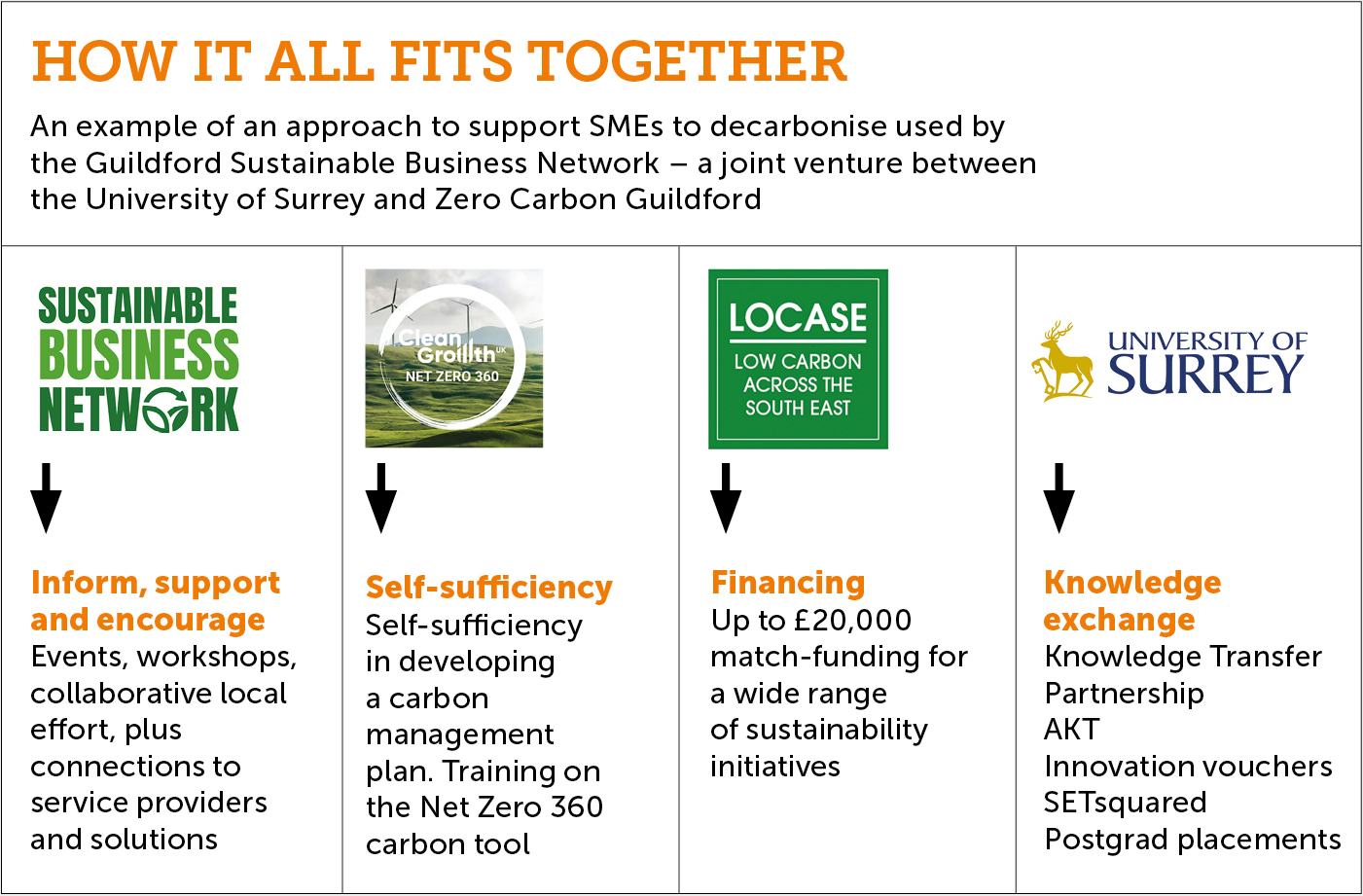Jen Smallwood on supporting SMEs in our efforts to decarbonise
Small and medium-sized enterprises (SMEs) account for 61% of total employment in the UK and a little over half of the turnover in the private sector, according to Federation of Small Businesses (FSB) figures from 2021.¹ With businesses being a major driving force in decarbonisation efforts, it is surprising, given these statistics, that SMEs are so often overlooked.
However, is it really? Unlike larger businesses and institutions, SMEs cannot afford to have an in-house sustainability team or put money towards hiring an environmental management company to help them better understand and manage their carbon emissions and other sustainability concerns. Throw in a global energy crisis, and the already more limited financial resources available to SMEs are even further stretched.
In addition to costs, it is important to consider the effect of scope 3 emissions. Regardless of a company’s size, scope 3 emissions are its largest emission source, accounting for more than 70% of its carbon footprint.² When it comes to SMEs, this is even more significant as their scope 1 and 2 emissions are almost negligible in comparison with their larger counterparts.
Our efforts to decarbonise the economy, which up until now have largely focused on scope 1 and 2 emissions, have resulted in SMEs being left behind. Understandably, these emissions were addressed first given that the ownership or control largely lies with the businesses themselves, and the strategies employed to address these emissions are more clearcut (compared with addressing scope 3 emissions).
On the flip side, with no direct ownership, control or obvious solutions for scope 3 emissions, it’s easy to see why they have yet to be addressed to the same extent as scope 1 and 2.
"We can no longer avoid the messiness of addressing scope 3 emissions”
However, we can no longer afford to avoid the messiness that comes with addressing scope 3 emissions. Furthermore, in doing so, we cannot make the same mistake of overlooking SMEs as we have done in the past.
After all, while the carbon footprint of one SME may not be consequential, collectively, SMEs make up 99.9% of all UK businesses³, resulting in a significant contribution to the UK’s carbon footprint and a vital role to play in meeting net-zero targets.
Why we need to support SMEs in our efforts to decarbonise is pretty straightforward. However, this leads to the question of how do we do so? The answer to this question is not nearly as concise. Just as there is no obvious solution to addressing scope 3 emissions, there is no explicit, surefire way to support all SMEs in decarbonising.
SMEs are not only an integral part of the economy but of their local communities too. Therefore, while some standard elements, such as knowledge-sharing and funding opportunities, may be needed to provide support to SMEs, we cannot subscribe to a one-size-fits-all approach because not all communities are the same. We have a choice in how we view the challenge of integrating SMEs into our efforts to decarbonise the economy – as an issue or as an opportunity. I suggest we choose the latter.

References
1 www.fsb.org.uk/uk-small-business-statistics.html
2 www.unglobalcompact.org.uk/scope-3-emissions
3 small99.co.uk/net-zero/small-business-carbon-stats
Jen Smallwood, GradIEMA, is senior quality assurance officer at King’s College London and a member of the Guildford Sustainable Business Network
Image credit: Shutterstock









